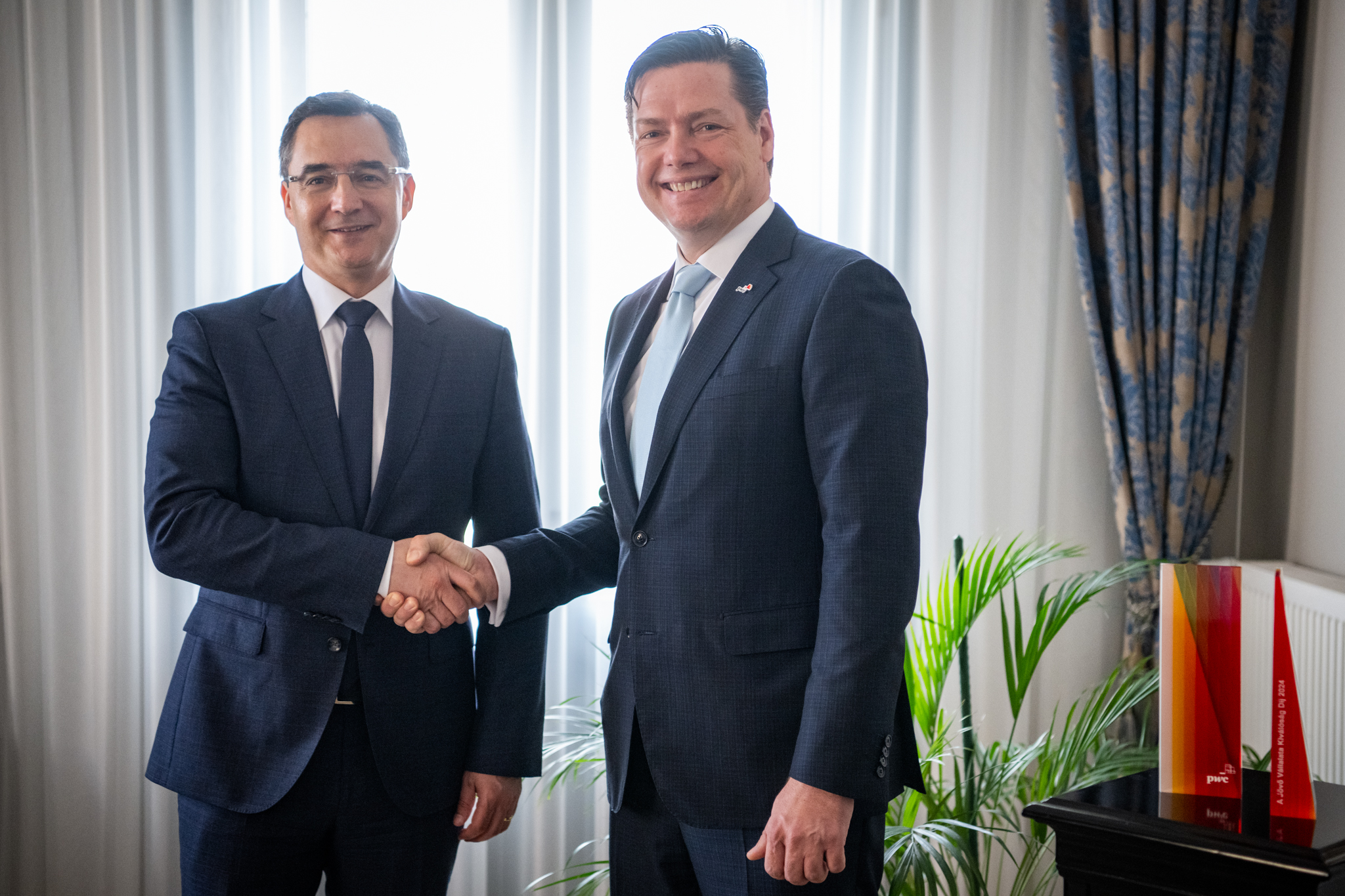We have to stop talking and start walking

With this provocative beginning, Jan Peter Balkenende, former prime minister of the Netherlands, delivered his speech about climate change at a Business Council for Sustainable Development in Hungary (BCSDH) business lunch. During this event, the council’s unique, four-point recommendations for the business sector were announced to help accelerate the shift towards a low-carbon economy, representing a milestone in Hungarian sustainability.
The BCSDH’s annual business lunch was being held this on November 17, simultaneously with the COP 22 Climate Change Conference in Marrakech. Guest speaker Professor Jan Peter Balkenende, former prime minister of the Netherlands, spoke about the role of businesses in mitigating climate change. BCSDH, which represents a community of 75 member companies that contribute 30% of Hungary’s GDP, invited the professor-politician to the event within the framework of its Action 2020 program in cooperation with the Embassy of the Kingdom of the Netherlands.
On behalf of GE, the host organisation of this event, President Joerg Bauer welcomed the 150 guests. Gajus Scheltema, Ambassador to Hungary of the Kingdom of the Netherlands then gave a welcome speech, followed by Jan Peter Balkenende, who spoke about the need for immediate action on climate change, and how the business sector should play a major role in this.
“Businesses and institutions are not only responsible for their own profits and well-being, but they also have a responsibility towards people and to create a better life for the next generation,” said Jan Peter Balkenende, adding that, besides other sustainability issues, climate change also makes long-term thinking indispensable for companies. “The longer you wait to implement measures, the tougher it will be in the future. So we cannot wait, and we need to do it together!”
Irén Márta, managing director of BCSDH, stated that one company alone cannot change the world, so there is a need for new alliances and cooperation within value chains. BCSDH, the national partner organization of World Business Council for Sustainable Development (WBCSD), represents one such corporate alliance. WBCSD has just announced its business recommendations for introducing carbon pricing at the COP 22 Climate Change Conference. At the same time, its Hungarian partner organisation also put forward recommendations for the business sector to support the transition towards a low-carbon economy. The four points in the recommendation identify how Hungarian companies can effectively contribute to global processes.
BCSDH’s recommendations for Business on Climate Change:
1. Analyse the local risks and opportunities associated with climate change, and create related action plans
2. Introduce carbon footprint measurement, analyse results and conduct action planning on an ongoing basis with regard to effectively decreasing carbon emissions
3. Identify and create action plans for energy use and/or CO2 emissions related to the processes of consumption and the use of products and services by shaping the attitudes and behaviour of consumers and customers
4. Raise awareness among employees
"It is very important for us at BCSDH to cooperate with those business leaders that are familiar with sustainability and who are aware of the importance of climate protection.” said Attila Chikán Jr., President of BCSDH. “Through the Action 2020 program we have worked with more than 150 experts over the past years who represent the business, civil and scientific sectors, and this collaboration has resulted in the recommendations announced today. It’s my conviction that, in the long run, you can only survive as an economic player if you have an entrepreneurial spirit, you are innovative and you are sustainable. However, if these components are harmonized, you can obtain a significant competitive advantage,” he added.
BCSDH’s Action 2020 Hungary program explores and inspires business solutions that go beyond “business as usual”, and which, as good practices, can be disseminated to a broader range of business actors. More than 50 companies have already joined the program.
In 2016, Climate Change is the main focal area of the Action 2020 Hungary program. With the involvement of CEOs, more than 50 civil, scientific and business experts formulated their recommendations on climate change. They have identified business solutions for both the business sector and the stakeholders who are affected, the promotion and implementation of which will positively impact climate change.
The main sponsors of this program in 2016: Siemens and Tesco, highlighted sponsors: Alteo Group, Generali, Hungrana, McDonaldʼs, Nestlé, Unilever.
SUPPORT THE BUDAPEST BUSINESS JOURNAL
Producing journalism that is worthy of the name is a costly business. For 27 years, the publishers, editors and reporters of the Budapest Business Journal have striven to bring you business news that works, information that you can trust, that is factual, accurate and presented without fear or favor.
Newspaper organizations across the globe have struggled to find a business model that allows them to continue to excel, without compromising their ability to perform. Most recently, some have experimented with the idea of involving their most important stakeholders, their readers.
We would like to offer that same opportunity to our readers. We would like to invite you to help us deliver the quality business journalism you require. Hit our Support the BBJ button and you can choose the how much and how often you send us your contributions.







